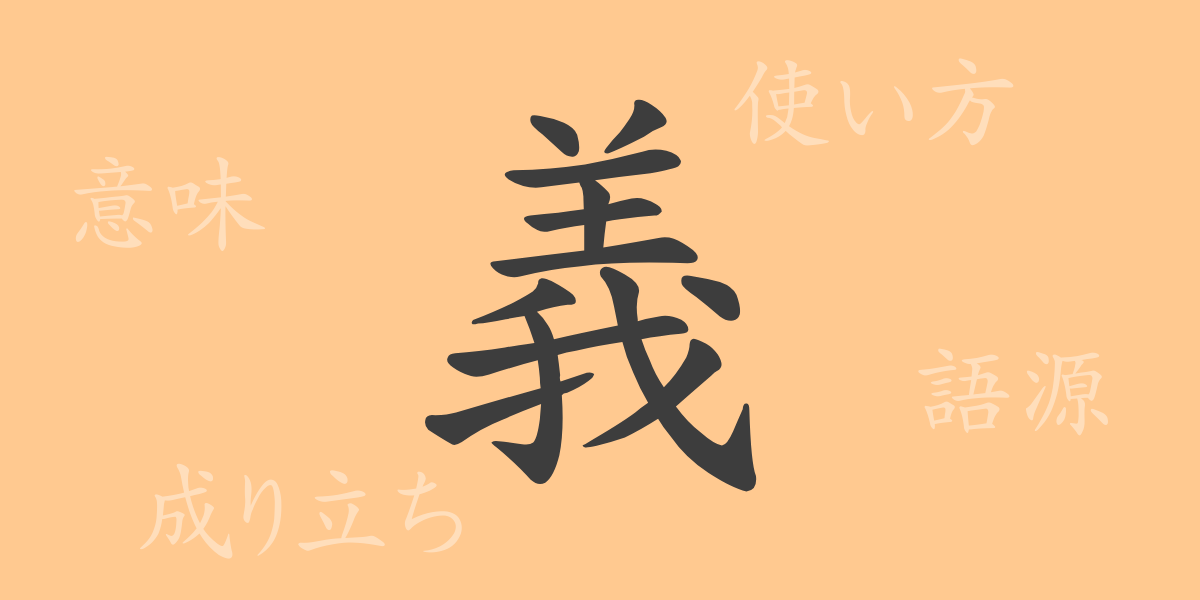The meanings embedded in a single kanji character reflect the culture and history of a country. The Japanese common-use kanji “義” (gi) is no exception. This article focuses on the rich history and various expressions used in daily life that feature the character “義” (gi). From its origin and readings to its meanings and usage, we will uncover the full scope of “義” (gi) and explore its profound charm.
Origin of the Kanji “義” (語源)
The kanji “義” (gi) developed from ancient Chinese pictographs. Originally, it was composed of the characters for “sheep” (羊, yō) and “I” (我, ga) combined, symbolizing a sacrificial ritual involving a sheep. This ritual represented social order and moral duty, leading “義” (gi) to gradually signify abstract concepts such as moral righteousness and duty.
Meaning and Usage of “義” (gi)
The kanji “義” (gi) is used to denote righteousness, duty, and justice in expressions like “正義” (seigi, justice), “義理” (giri, moral obligation), and “義務” (gimu, duty). It plays a significant role in both legal and ethical contexts, representing adherence to societal rules and moral conduct.
Reading, Stroke Count, and Radical of “義” (gi)
The kanji “義” (gi) is deeply rooted in Japanese culture through both its form and meaning.
- Reading: The on-yomi (Chinese reading) is “ギ” (gi); there is no kun-yomi (Japanese reading).
- Stroke count: 13 strokes.
- Radical: 羊 (ひつじへん, hitsuji hen), meaning sheep.
Idioms, Proverbs, and Expressions Using “義” (gi)
There are many idioms, proverbs, and expressions in Japanese that include “義” (gi), significantly influencing Japanese life and spirit. For example, “義理堅い” (ぎりがたい, girigatai) describes someone who values moral obligations, and the proverb “義を見てせざるは勇無きなり” (ぎをみてせざるはゆうなきなり, gi wo mite sezaru wa yuu naki nari) means that ignoring what is right is a sign of cowardice.
Summary on “義” (gi)
Through this article, you should now have a deeper understanding of the historical background of the kanji “義” (gi) and its role in modern society. Symbolizing justice and morality, “義” (gi) is an essential concept for maintaining both individual conduct and societal order. When you encounter “義” (gi) in Japanese, we hope you recall the rich meanings it carries.

























